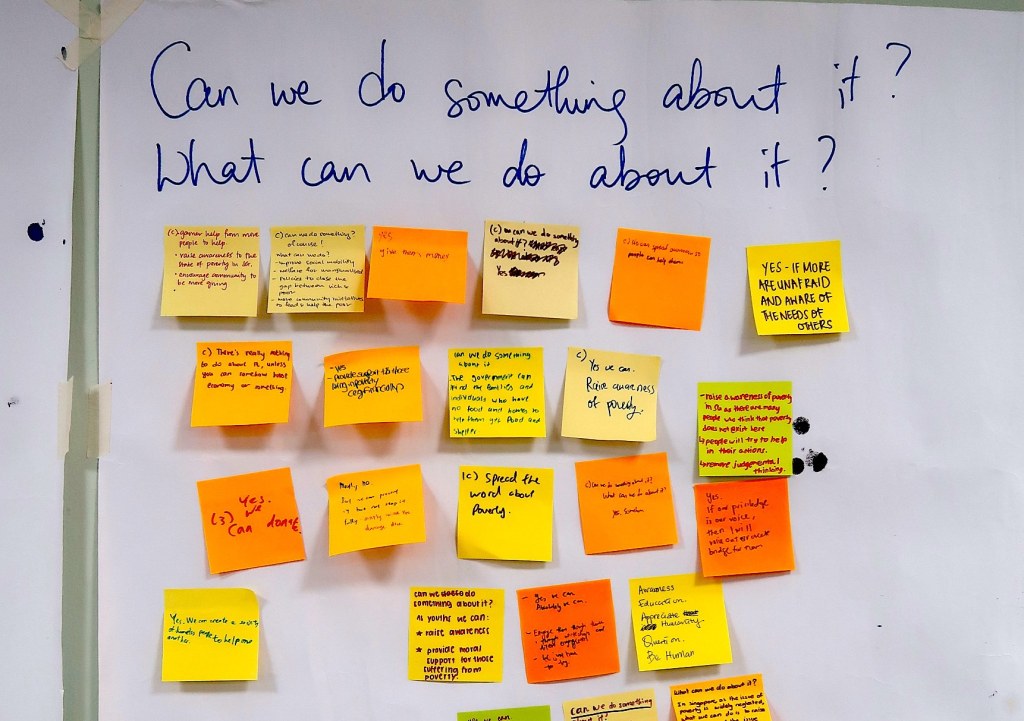Difference between revisions of "Disability/Landscape of Needs and Gaps"
| Line 21: | Line 21: | ||
# <big>'''You make the call on what information counts as credible and for what purpose.''' Any information that this wiki contains at any particular time is a work-in-progress. Especially with contentious matters, due diligence should be done to check the sources that are cited. Inputs that are not cited may not be wrong, and likely require deeper investigation or communication between different parties to clarify.</big> | # <big>'''You make the call on what information counts as credible and for what purpose.''' Any information that this wiki contains at any particular time is a work-in-progress. Especially with contentious matters, due diligence should be done to check the sources that are cited. Inputs that are not cited may not be wrong, and likely require deeper investigation or communication between different parties to clarify.</big> | ||
# <big>'''If a concern or issue is not represented, or if something looks amiss, take action and call it out.''' Use the [http://wiki.socialcollab.sg/index.php?title=Talk:Disability/Landscape_of_Needs_and_Gaps&action=edit&redlink=1 Discussion] page here, or if you have a wiki account, add/delete information in the knowledge base as required. Otherwise, feel free to email Andrew (andrew.lim@nus.edu.sg) or Justin (justin.lee@nus.edu.sg) with your feedback, comments or to get an account. <span style="color:#ff0000">'''Currently, issues across certain disabilities may not be as evenly represented as others'''</span> - so please call them out and contribute what you know.</big> | # <big>'''If a concern or issue is not represented, or if something looks amiss, take action and call it out.''' Use the [http://wiki.socialcollab.sg/index.php?title=Talk:Disability/Landscape_of_Needs_and_Gaps&action=edit&redlink=1 Discussion] page here, or if you have a wiki account, add/delete information in the knowledge base as required. Otherwise, feel free to email Andrew (andrew.lim@nus.edu.sg) or Justin (justin.lee@nus.edu.sg) with your feedback, comments or to get an account. <span style="color:#ff0000">'''Currently, issues across certain disabilities may not be as evenly represented as others'''</span> - so please call them out and contribute what you know.</big> | ||
| − | = ''' | + | = '''ISSUES THAT HAVE BEEN EXPLORED SO FAR''' = |
{| class="wikitable" | {| class="wikitable" | ||
|- | |- | ||
Revision as of 04:45, 10 March 2020
PLEASE READ ALL INFORMATION ON THIS PAGE FIRST.
What this is: This is a sub-page of the Disability issue page dedicated to the ongoing understanding of needs and gaps in the disability sector. Disability comes in many types and forms, and this is a broad overview of those issues.
Aims: To democratise knowledge production with the belief that everyone can play a part in better understanding, and contributing to improving the disability landscape in Singapore. To improve awareness about the disability landscape in general, ongoing initiatives to meet gaps, and to spur collaborations between partners.
Method: Through scanning existing literature (reports, research, news articles) as well as discussions, roundtables and through open collaboration with disabled persons, caregivers, organisations working with persons with disabilities and interested individuals:
- Needs can be identified, articulated and revised
- Resources can be mapped to those needs
- Evaluations on how well resources fit needs can be performed (e.g., are they adequate or inadequate, are there enough/too many services?)
- Ideas and solutions to fill gaps can be brainstormed and gathered
Who can contribute: Anyone, as long as you would like to help articulate what the gaps in the disability sector are (or at least, a lead) and can keep an open mind to changes in what you know.
HOW TO USE THIS PAGE PROPERLY
- Things will be messy and always be a work in progress. Deliberation is always ongoing and some issues might be more contentious, or resolved than others. Do not expect everything to be correct right from the start - everyone is in the process of getting things right. Theories of change shift depending on what where we are in terms of progress and what we want to be held accountable to.
- Although each issue is explored separately, all parts are in motion. Hence, each issue should be seen together/in tandem with others.
- This knowledge base is consolidated from a variety of sources - books, newspaper articles, reports but above all, people who have taken the trouble to contribute to it. Unlike a formal report which is authored by few authoritative people, this knowledge base is the blood and sweat of all who take the trouble to contribute to it.
- Structure and organisation is needed even though the issue is complex. Disability, like most social issues, is complex with many intertwining and competing factors. Nevertheless, if we are to deal with the matters at hand, some level of structure and organisation is necessary. Starting from the big picture (see below), click on individual areas of interest and you will be guided to explore specific facets.
- You make the call on what information counts as credible and for what purpose. Any information that this wiki contains at any particular time is a work-in-progress. Especially with contentious matters, due diligence should be done to check the sources that are cited. Inputs that are not cited may not be wrong, and likely require deeper investigation or communication between different parties to clarify.
- If a concern or issue is not represented, or if something looks amiss, take action and call it out. Use the Discussion page here, or if you have a wiki account, add/delete information in the knowledge base as required. Otherwise, feel free to email Andrew (andrew.lim@nus.edu.sg) or Justin (justin.lee@nus.edu.sg) with your feedback, comments or to get an account. Currently, issues across certain disabilities may not be as evenly represented as others - so please call them out and contribute what you know.
ISSUES THAT HAVE BEEN EXPLORED SO FAR
| Detection & Diagnosis | → | Early Intervention | → | Education | ↗ | The Arts | → | Social Inclusion |
|---|---|---|---|---|---|---|---|---|
| → | Sport | → | ||||||
| → | Employment | → | ||||||
| ↘ | Community Participation / Belonging | → | ||||||
| ↑ | ||||||||
| Caregiver Support | Accessibility to Infrastructure and Information | Transport | → | |||||

